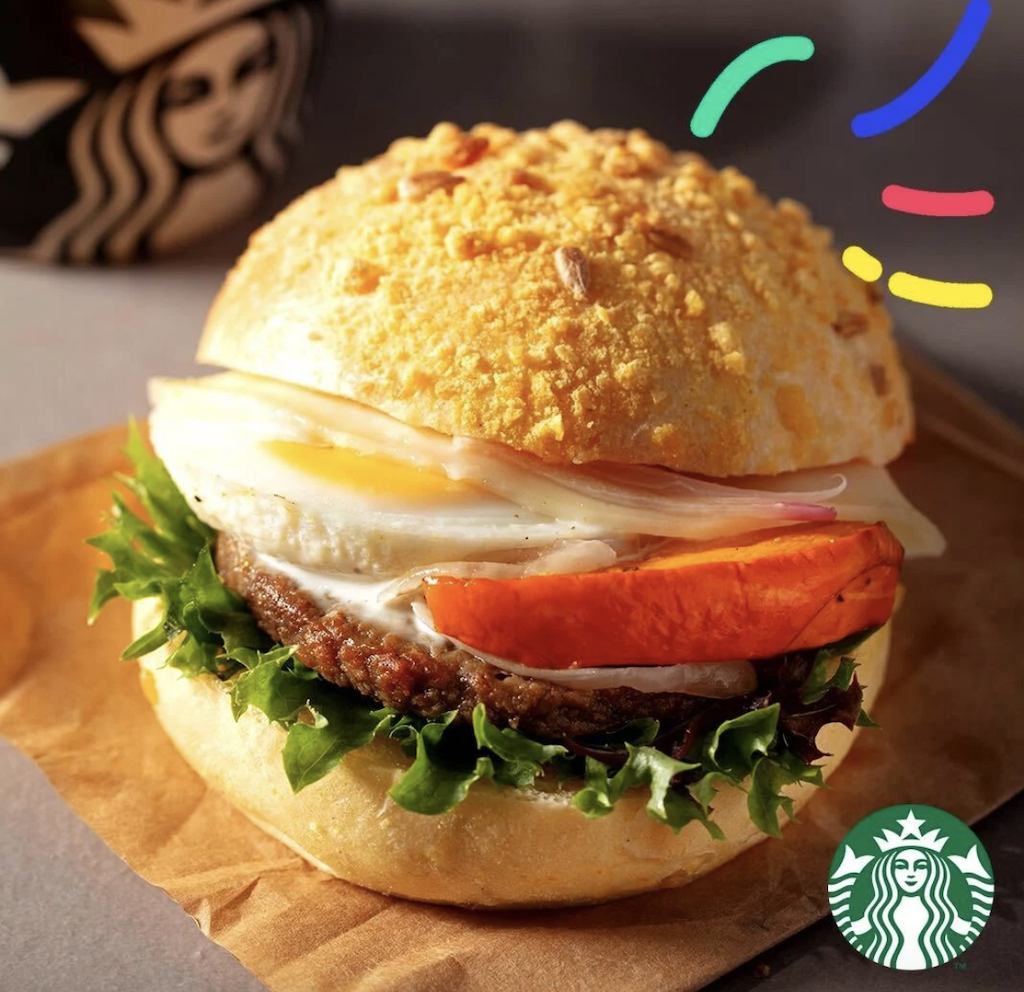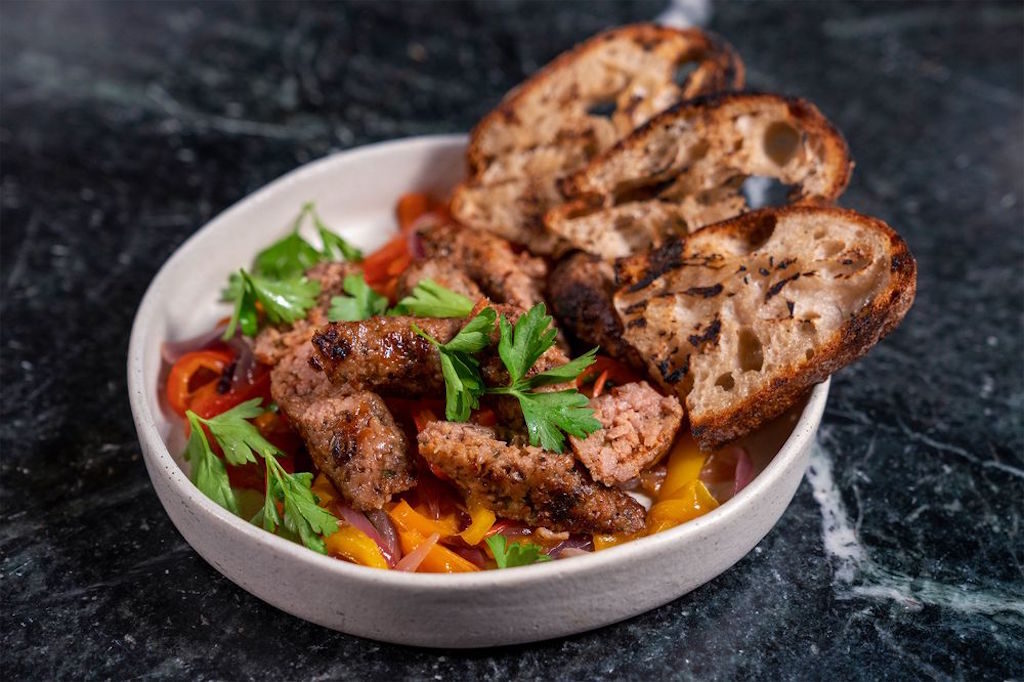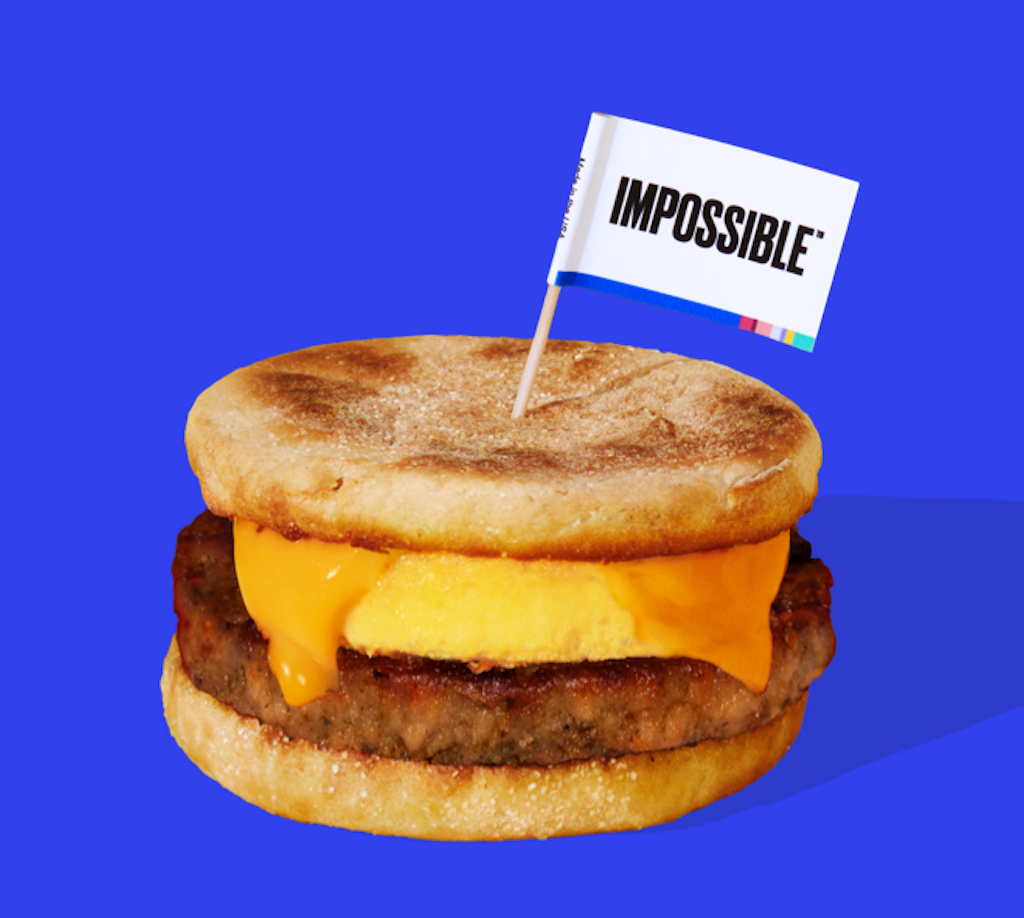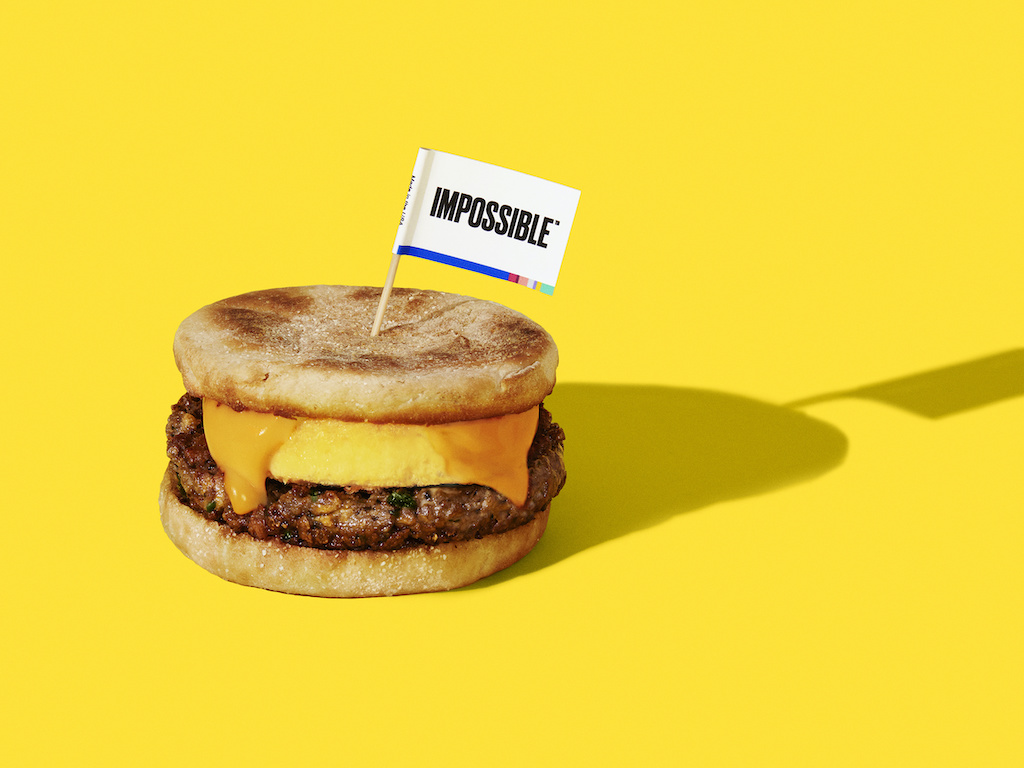8 Mins Read
During an invite-only virtual media conference featuring the company’s most senior executives attended by Green Queen, Impossible Foods has officially announced today (September 10) the launch of its Impossible Sausage Made From Plants in Hong Kong, marking the product’s first international debut outside of the United States. First exclusively available across over all Starbucks locations in the city, Impossible Sausage will later be introduced in additional restaurants this month.
As of today, Impossible Sausage, the Silicon Valley food tech’s first all-new product since its Impossible Burger, will be available as a vegetarian-friendly sandwich at all Starbucks locations in Hong Kong. It marks the first time the product has been introduced outside of its domestic market in the U.S., where the patties have landed in over 22,000 locations after its initial launch at the CES in Las Vegas in January.
Impossible Foods also revealed that the Impossible Sausage will debut later this month at a number of additional restaurants throughout Hong Kong. Among the restaurants partnering with the food tech are burger chain Triple O’s, neighbourhood Italian restaurants Fini’s and Frank’s Italian American, as well as popular café chain URBAN.

During the conference, founder and CEO Brown told reporters that Impossible Sausage was the next product the company decided to launch after beef because of the significance of global pork demand, especially in Asia. “While pork isn’t quite as bad an environmental disaster as beef, it also poses major public health risks as an incubator of livestock pandemic viruses, so it was always on our target list.”
Speaking about the next major expansion that Impossible is eyeing, Brown was clear that mainland China is the company’s target. “We want to launch in mainland China and build an entire production ecosystem in China as soon as we possibly can,” Brown said. “China is the fastest growing meat consumption market in the world, and the demand for meat in the country creates a food security issue because there is not enough agricultural land to meet the demand.”
We want to launch in mainland China and build an entire production ecosystem in China as soon as we possibly can. China is the fastest growing meat consumption market in the world, and the demand for meat in the country creates a food security issue because there is not enough agricultural land to meet the demand.
Patrick Brown, Founder & CEO Impossible Foods
Read: Q&A with Nick Halla on Impossible’s mission in Asia
Impossible Sausage is made with soy protein, coconut oil, sunflower oil and heme, the ingredient that gives the brand’s analogues its desired meaty iron-filled taste and texture. Compared to conventional pork sausage, Impossible’s version leaves behind a fraction of the environmental footprint and contains no antibiotics while boasting similar levels of protein and more iron.

Hong Kong was also Impossible Foods’ first international market for its first original product, the Impossible Burger, which became a much-loved menu staple across food outlets, including Little Bao, Beef & Liberty and The Butchers Club. It is therefore no surprise that the startup decided to launch its second award-winning product again in Hong Kong.
“We picked Hong Kong as the first palace outside of the U.S. because we have a long history of doing exclusive premieres in Hong Kong. It’s an amazing market for us,” said Rachel Konrad, CCO at Impossible Foods, during the conference. “Hong Kong has been a major customer and we have lots of fans in the city. We see loads of social media buzz here around Impossible Sausage.”
Pat Brown added that the huge success of the Impossible burger launch back in 2018 is “why we’re back in Hong Kong – our favourite international launch centre – with our Impossible Sausage, the city is “a great culinary place, our go-to place and that’s why we are back with the Sausage.”
We picked Hong Kong as the first palace outside of the U.S. because we have a long history of doing exclusive premieres in Hong Kong. It’s an amazing market for us.
Rachel Konrad, CCO Impossible Foods
Nick Halla, the company’s Senior Vice President of International Markets underlined that Hong Kong had been hugely important in terms of product learnings. “A lot of the learnings were about how Impossible is cooked and applied to different cuisines. We’ve seen the number of doors in Hong Kong go up more than 150%, and there are now more than 700 locations serving our Impossible Burger. Same in Singapore, it’s up 100% and Impossible is available at over 500 doors.”
Brown was uncharacteristically unsure when asked about the the impact of the much-protested National Security Law imposed by mainland China on the city on Impossible’s Hong Kong plans: “There are a lot of places in the world, including in the U.S., where I am not fully aligned with the politics. But that doesn’t stop us from pursuing our mission there. If we said there needs to be a political litmus test, we won’t save the world from environmental disaster.
“We have a target of 2035 to replace animals from the food system, which is doable, but we won’t be able to do that if we only launch in markets whose politics we completely agree with. I understand that there are a lot of complications in politics in Hong Kong, and we’ll just have to see. As long as the people of Hong Kong have the same receptivity to great new food products and we have access to the market, it’s going to be essential to our mission. As long as it doesn’t isolate itself from the world, it’s still a great place to launch our products because of its culinary richness. This is a very complicated question that I don’t have a great answer to. We aren’t going to turn our backs from Hong Kong.”
Halla also announced that Impossible products will be available for retail purchase at grocery stores in Hong Kong before the end of 2020: “We’re planning to launch retail here in Q4. Consumers are going to be all over this. We already have some of our products from restaurants during coronavirus, when we allowed our partners to sell their Impossible stock to consumers we saw big demand for this.”
When questioned about the difference between Impossible beef and Impossible pork, Brown explained that “It’s not exactly the same. The technological process is similar. The process we used to make our ground beef involves taking a few simple ingredients and putting them in a large mixing bowl and forming them into patties. It’s a simple process and simple ingredients. The main ingredients in the Impossible Sausage are similar to our plant-based ground beef product.”
We’re planning to launch retail here in Q4. Consumers are going to be all over this. We already have some of our products from restaurants during coronavirus, when we allowed our partners to sell their Impossible stock to consumers we saw big demand for this.
Nick Halla, SVP International at Impossible Foods

Read: 10 best vegan Impossible dishes to order in Hong Kong
According to the brand, Asia remains a firm target for major expansion as part of the company’s mission to eliminate the need for animal agriculture, of which the region fuels 44% of the world’s total demand.
When asked about Beyond Meat’s presence in mainland China, Brown had a clear message: “We are not interested in competing with Beyond Meat and we wish Beyond Meat all the success in the world. We are interested in competing with animals.”
Regarding timeline for a China launch, Brown underlined that the company is making great progress in the mainland: “Because we are launching a new product – an entirely new category of plant-based meat that actually replicates meat at the molecular level – the regulatory authorities in China need to review it and the safety behind it. It’s going well, but it takes time and there is work developing a regulatory framework to develop plant-based meats. We can’t start building a plant in China until we get regulatory approval, and when we do, we will start by shipping the product we produce in the U.S. into the country, but pretty much start doing work immediately not just to set up a manufacturing facility but to also build a domestic supply chain for ingredients.”
Brown called China’s animal-based meat supply “an environmental disaster and public health nightmare.”
In addition to the environmental cost of livestock farming, Impossible Foods said during the conference that its launch and expansion in Asia is particularly relevant now more than ever before as the coronavirus pandemic exposes the dangers of animal protein.
Our investors like Temasek expect us to operate at the highest standard, so we exist and operate as if we’re public. And today we’re not announcing an IPO or direct listing.
David Lee, CFO Impossible Foods
On the topic of GMOs and whether Impossible’s GM heme and soy makes it difficult to launch in certain markets, Brown replied: “We’re not restricted by how our food is made or the fact that we use GMO yeast to make it. Most countries have widespread GMO microorganisms and yeast ingredients. That’s true globally. There’s a widespread belief that some countries are categorically opposed but as a fact of the matter, that is no. We expect we’re going to be able to sell our products anywhere in the world.”
David Lee, the company’s Chief Financial Officer who has scored some big funding wins this year, was pushed about a potential IPO but remained adamant that there was no news on this subject: “Our investors like Temasek expect us to operate at the highest standard, so we exist and operate as if we’re public. And today we’re not announcing an IPO or direct listing.”
All images courtesy of Impossible Foods.




